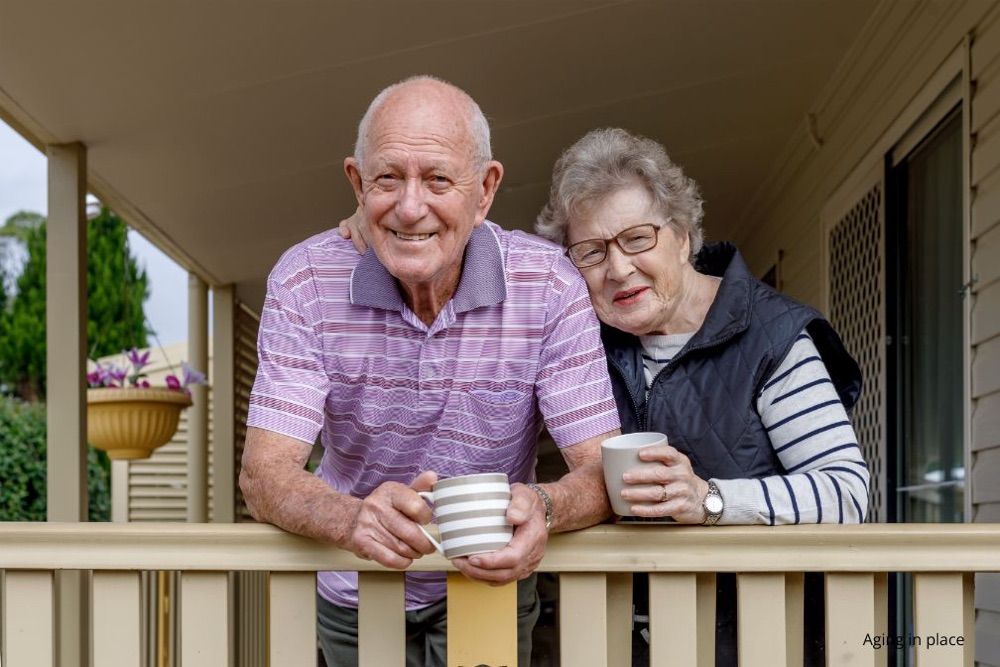Senior Living Options
Today, seniors are fortunate to have many living options, from aging in place to continuing care retirement communities (CCRC). However, the task of deciphering these options, whether for yourself or a loved one, can feel like navigating a maze. Terms like assisted living, independent living, and Continuing Care Retirement Community can seem like a foreign language, making the decision process even more challenging.
At Phoebe Ministries, we understand the complexity of choosing the right senior living option. That's why we offer a range of senior living options and are committed to guiding you through this often-complicated process.
2 Types of Senior Living Options
Aging in Place
A 2021 AARP survey found that "more than three-quarters of adults 50 and older said they wanted to stay in their homes or their communities as they age." Today, with government programs and services like those provided by Comforting Home Care by Phoebe, aging in place has become possible for more aging adults.
This is excellent news because, according to the Department of Housing and Urban Development (HUD), "Aging in place has … been shown to have health and emotional benefits over institutional care." Some benefits of aging in place include maintaining independence and community connections and a healthier, more comfortable, and familiar environment.
Furthermore, HUD states, "Evidence suggests that programs that support aging in place may yield cost savings for families, government, and health systems." For example, "from 2004 to 2007, in 2009 dollars, the median monthly payment for noninstitutional long-term care was $928 compared with $5,243 for nursing homes. Expenditures for nursing homes are more than three times those for noninstitutional long-term care services, and these rates are continuing to rise."
Depending on the individual's physical and mental health, aging in place may require some modifications to the home and the need for a caregiver. Comforting Home Care by Phoebe is helping more and more seniors enjoy the benefits of aging in place.
We offer the following services:
- Hourly Care
- 24-Hour Care
- Alzheimer's and Dementia Care
- Home Transition Care
- Senior Transportation
- Cancer Home Recovery
- Multiple Sclerosis Care
Continuing Care Retirement Communities
If aging in place is not what the senior wants or is not an option, a Continuing Care Retirement Community (CCRM) like Phoebe Berks can be a great option. "Continuing care retirement communities provide different levels of assistance from on-site cottages where residents live independently but get meals in a dining area, to assisted living quarters, to skilled nursing care."
Phoebe Berks offers a full continuum of care for every age and stage of retirement: from independent living in a maintenance-free apartment or cottage to specialized memory support — all in one location. Here's what we offer:
- Independent Living
- Personal Care / Assisted Living
- Skilled Nursing
- Memory Support
3 Tips for Choosing the Right Senior Living Option
Every senior has different wants and needs, so there is no one-size-fits-all solution when choosing the right senior living option for yourself or an aging loved one. Here are some tips:
- Determine what you, your family, and/or your aging loved one wants and needs.
- Talk to a physician about any concerns they may have about mobility or health issues.
- Talk to a financial advisor with experience with Medicare, Medicaid, pensions, retirement accounts, etc., to see what you can afford.
Request a Free In-Home Consultation With a Licensed Nurse
Want to learn more about Comforting Home Care by Phoebe? Request a free in-home consultation. We'll send a compassionate licensed nurse to meet with you or a loved one anywhere in Berks, Bucks, Lehigh, and Northampton Counties.
Contact us at 610-625-5206 or connect with us online to learn more.












